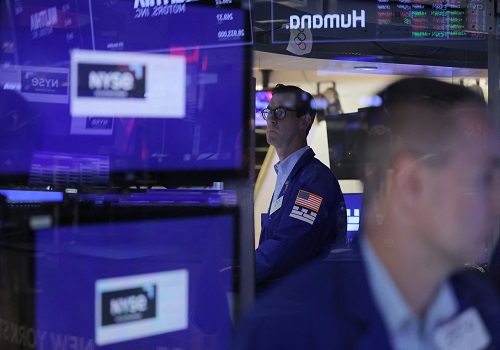Stocks rebound, oil up again as market eyes higher jobless data

Follow us Now on Telegram ! Get daily 10 - 12 important updates on Business, Finance and Investment. Join our Telegram Channel
WASHINGTON/LONDON -U.S. stocks looked set to mount a comeback after new economic data suggested a tightening labor market, while oil treaded water after announced big supply cuts from OPEC+.
U.S. stocks erased early losses to start the day in positive territory after the U.S. Labor Department reported more Americans filed new claims for jobless benefits than expected.
Initial claims came in at 219,000 for the week ended Oct. 1, exceeding economist expectations of 203,000 and feeding investor appetite for signs the Federal Reserve and other central banks may be finding success in slowing inflation with rate hikes.
The Dow Jones Industrial Average was up 0.12% in early trading, wihle the S&P 500 climbed 0.32% and the Nasdaq Composite added 0.65%.
The MSCI world equity index, which tracks shares in 45 nations, was last up 0.24%.
The jobless data adds to the murky picture for investors, who are closely tracking economic reports for any signs the Fed is moving closer to being able to step away from aggressive interest rate increases.
Right now, a mixed picture is forming, after job openings figures suggested hiring is slowing, while measures of private-sector employment and service sector activity pointed to a stronger September than many had expected.
On Friday, the Labor Department will provide another big piece to the puzzle with its monthly jobs report.
"The job market is still solid but is softening," said Bill Adams, chief economist for Comerica Bank. "As the unemployment rate ticks higher, wage growth will likely slow, taming some of the inflationary pressure in the US economy."
For now, Fed officials are showing little sign of preparing to step back from rate hikes. San Francisco Federal Reserve President Mary Daly underscored the U.S. central bank's commitment to curbing inflation with more interest rate hikes, although she also said the Fed will not simply barrel ahead if the economy starts to crack.
Complicating the near-term outlook further is next week's data on U.S. consumer inflation, which is expected to have slowed for a third month in September to 8.1%, still its highest since the mid-1980s.
"We're in two environments right now and the market is trying to decide whether we are in an inflationary or recessionary one," Justin Onuekwusi, head of EMEA retail investments at Legal & General Investment Management, said.
U.S. non-farm payrolls data is due on Friday and analysts polled by Reuters expect 250,000 jobs were added last month. This would mark the smallest increase so far in 2022. The unemployment rate is expected to come in at 3.7%.
The dollar was up 0.55%% against a basket of major currencies on Thursday, after having risen 0.7% the day before, while U.S. Treasury yields were up four basis points at 3.7953%.
CRUDE REALITY
Just as investors appeared to get some respite from a relentless march higher in energy costs - not least in Europe, where consumers are facing a doubling in their utility bills from last year - crude oil prices have risen again in recent days.
The Organization of the Petroleum Exporting Countries and its partners, including Russia, have agreed to the deepest cut in production since the COVID-19 pandemic began, choking off supply to an already tight market.
Oil prices continued gaining on Thursday after three days of gains, but were still at their highest since mid-September. Brent crude was up 0.43% to $93.76 a barrel while U.S. crude was up 0.44% to $88.15.












 320-x-100_uti_gold.jpg" alt="Advertisement">
320-x-100_uti_gold.jpg" alt="Advertisement">








